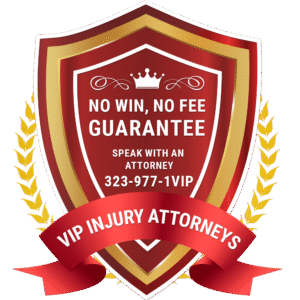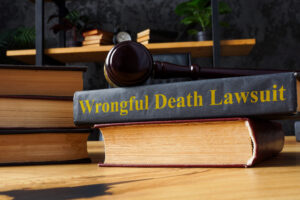Picture this: You’re rushing home after a difficult day at work. The traffic is horrible, but finally, the light turns green and you proceed through the intersection. Suddenly, another driver speeds through their red light, t-boning your vehicle. Your next memory? Waking up in a hospital bed, surrounded by concerned family members, with a doctor telling you how lucky you are to be alive.
In this terrifying moment, as medical bills start piling up and you’re wondering if you’ll ever work again, you’ve made the crucial decision to hire a personal injury attorney. But now what? What exactly happens after you sign those representation papers?
Many accident victims feel lost in the legal process, unsure of what to expect or how long their case might take. This uncertainty only adds stress during an already challenging recovery period. Understanding the journey ahead can provide much-needed peace of mind as you focus on healing.
The Legal Process: From Hiring an Attorney to Resolution
Initial Case Development and Investigation
Before any paperwork is filed with the court, your attorney will conduct a thorough investigation of your accident and injuries. This critical first phase typically includes:
- Comprehensive client interview: Your attorney will gather detailed information about the accident, your injuries, medical treatment, impact on your life, and pre-existing conditions.
- Collection of evidence: This may include police reports, witness statements, photographs of the accident scene and your injuries, video footage, and any other relevant documentation.
- Medical record review: Your attorney will request and analyze all medical records related to your injuries to understand the full extent of your damages.
- Insurance policy analysis: Your lawyer will review all relevant insurance policies, including the at-fault party’s coverage and your own policies (such as health insurance, disability insurance, and underinsured/uninsured motorist coverage).
- Accident reconstruction: In complex cases, specialized experts might be hired to recreate the accident scenario and establish liability.
This investigative phase is crucial for building a strong foundation for your case. Many clients are surprised by how detailed this process is, but this thoroughness is what enables your attorney to accurately value your claim and build compelling arguments for compensation.
Official Filing: The Complaint
The legal process officially begins when your attorney files a document called a “complaint” with the appropriate civil court. This critical document:
- Outlines how you were injured
- Details the extent of your injuries and damages
- Explains why the defendant is legally responsible
- Specifies the compensation you’re seeking
- Establishes the legal theories under which you’re seeking recovery
Your attorney will carefully select the appropriate court for filing based on several factors, including:
- The location where the accident occurred
- Where the defendant resides or conducts business
- The amount of damages involved
- Jurisdictional rules that may affect your case
After filing, the complaint must be “served” to the defendant—meaning they must be personally provided with a copy according to specific legal requirements. This formal delivery prevents the defendant from later claiming they were unaware of the lawsuit. Along with the complaint, the defendant receives a summons that specifies when they must appear in court or respond to the allegations.
The Defendant’s Response
Once served with your complaint, the defendant typically has 30 days to respond (though this timeframe varies by jurisdiction). During this period, the defendant will usually take two immediate actions:
- Retain legal counsel: The defendant will either hire their own attorney or, more commonly in personal injury cases, their insurance company will appoint an attorney to represent them.
- File an answer to the complaint: This document responds to each allegation in your complaint by:
- Admitting to the allegation
- Denying the allegation
- Stating there is insufficient information to admit or deny
The answer document typically includes defenses—legal arguments explaining why the defendant shouldn’t be held liable for your injuries. These might include claims that:
- You were partially or fully responsible for the accident (comparative or contributory negligence)
- You assumed the risk of injury
- The statute of limitations has expired
- Your injuries were pre-existing or caused by something other than the accident
In some cases, the defendant might file a counterclaim if they believe you were actually responsible for their injuries. If this happens, your attorney will file a “reply to counterclaim” addressing each of their allegations.
The Discovery Phase: Uncovering the Full Story
The discovery phase is where both sides exchange information and evidence related to the case. This phase can last several months to over a year, depending on the complexity of your case and the court’s schedule. Discovery typically includes:
1. Written Discovery
- Interrogatories: Written questions that must be answered under oath
- Requests for production: Demands for documents, photographs, electronic records, and other evidence
- Requests for admission: Asking the other party to admit or deny specific facts to narrow the disputed issues
2. Depositions
Depositions are formal interviews conducted under oath and recorded by a court reporter. Your attorney will prepare you thoroughly for your deposition, where the defense attorney will ask you questions about:
- How the accident happened
- Your background and medical history
- The nature and extent of your injuries
- How your injuries have affected your life
- Your medical treatment and recovery process
Similarly, your attorney will depose the defendant and key witnesses to strengthen your case and uncover any inconsistencies in their version of events.
3. Expert Witnesses
Complex personal injury cases often require testimony from expert witnesses, who may include:
- Medical experts who can explain your injuries and prognosis
- Accident reconstruction specialists
- Economic experts who calculate lost wages and future earning capacity
- Life care planners who detail your future medical needs
Your attorney will identify and work with appropriate experts whose testimony can support your claim for damages.
Pre-Trial Motions and Hearings
Throughout the discovery process, both sides may file various motions—formal requests asking the court to make specific rulings. Common motions include:
- Motion to dismiss: The defendant may ask the court to throw out part or all of your case based on legal technicalities.
- Motion for summary judgment: Either party may ask the court to rule in their favor without a trial if they believe the undisputed facts and law clearly support their position.
- Motions in limine: Requests to exclude certain evidence from trial.
The court will schedule hearings to resolve these motions and address other pre-trial matters, including:
- Setting deadlines for completing various phases of the case
- Scheduling settlement conferences
- Establishing a trial date
- Determining which evidence will be allowed at trial
Settlement Negotiations: Resolving Your Case Without Trial
The vast majority of personal injury cases—approximately 95%—settle before reaching trial. Settlement negotiations can happen at any point in the legal process, but they often intensify after substantial discovery has been completed.
Settlement offers several advantages:
- Guaranteed compensation (though potentially less than a jury might award)
- Faster resolution than proceeding to trial
- Avoidance of trial-related stress and uncertainty
- Lower legal costs
Your attorney will present all settlement offers to you and provide advice on whether to accept or continue negotiating. The decision to settle is always yours to make—your attorney cannot accept or reject a settlement offer without your approval.
Alternative Dispute Resolution (ADR)
If direct settlement negotiations stall, your case may proceed to alternative dispute resolution methods:
Mediation
In mediation, a neutral third party (the mediator) facilitates discussions between you and the defendant to help reach a mutually acceptable settlement. The mediator doesn’t make decisions but helps both sides find common ground.
Arbitration
Arbitration is more formal than mediation. An arbitrator (or panel of arbitrators) hears evidence from both sides and renders a decision that may be binding or non-binding, depending on your agreement.
In California, many courts require parties to attempt ADR before proceeding to trial. These processes can be valuable opportunities to resolve your case more efficiently while maintaining greater control over the outcome.
Going to Trial: When Settlement Isn’t Possible
If settlement negotiations and ADR are unsuccessful, your case will proceed to trial. Personal injury trials typically last several days to several weeks and follow a structured process:
- Jury selection: Both attorneys question potential jurors to select an impartial jury (unless it’s a bench trial where the judge decides the case).
- Opening statements: Each attorney outlines what they intend to prove during the trial.
- Plaintiff’s case: Your attorney presents evidence and witnesses to support your claims.
- Defendant’s case: The defense presents their evidence and witnesses.
- Closing arguments: Both attorneys summarize their arguments and ask for a verdict in their favor.
- Jury deliberation and verdict: The jury discusses the case privately and reaches a decision on liability and damages.
If successful, the jury will award damages that may include:
- Medical expenses (past and future)
- Lost wages and diminished earning capacity
- Pain and suffering
- Emotional distress
- Loss of enjoyment of life
- Property damage
Post-Trial: Appeals and Collection
If either party is dissatisfied with the trial outcome, they may appeal to a higher court. This process can take months or even years, potentially delaying your compensation.
If you win at trial and no appeal is filed (or appeals are unsuccessful), the defendant or their insurance company must pay the judgment. In cases where the defendant refuses to pay, your attorney can pursue collection actions, including:
- Placing liens on the defendant’s property
- Garnishing wages
- Seizing bank accounts or other assets
Why Having the Right Attorney Matters
As you can see, the personal injury legal process is complex, time-consuming, and requires extensive legal knowledge. Having experienced representation can make an enormous difference in both the process and outcome of your case.
At VIP Injury Attorneys, we handle every aspect of your case with the expertise and dedication it deserves. Our approach embodies our core values:
- Victory: We work tirelessly to secure the compensation you deserve, backing our commitment with a “No Win, No Fee” guarantee.
- Integrity: We provide honest, straightforward counsel throughout the legal process.
- Passion: We’re driven by the positive impact our work has on our clients’ lives during their most challenging times.
When injury strikes, life can turn upside down. Medical bills pile up, work becomes impossible, and the future feels uncertain. Don’t face this alone. VIP Injury Attorneys stand in your corner every step of the way.
Need Help After an Accident?
Let us help you fight for the treatment you need and the compensation you deserve. We offer a “No Win, No Fee” guarantee! So don’t settle for less than VIP treatment. Contact us today for a free consultation and let us take the fight off your shoulders. We’ll handle the legal battles while you focus on healing and rebuilding your life.
Stay updated on important legal information by subscribing to our newsletter or following us on Facebook, YouTube, Instagram, and TikTok.





